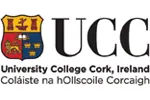We're moving! This site will be relocating to goingto.university in 2026. Please update your bookmarks to the new address.


| The award | How you will study | Study duration | Course start | Domestic course fees | International course fees |
|---|---|---|---|---|---|
| MSc | Full-time, Part-time | 1 year | September | - | - |
Overview
The course has an excellent employment track record. Since inception 100%of students on the course gained graduate employment. For a list of these jobs please see http://www.ucc.ie/en/media/Careers.pdf
The MSc Financial Economics course in UCC involves advanced study of the practices of investment, banking and risk management. Course modules cover topics such as:
The course also involves an applied research project, using cutting-edge techniques and software.
The MSc Financial Economics is at the top end of graduate study in business/finance in Ireland and is designed for high achievers who wish to pursue high-end careers in financial markets, such as:
Course Details
Course Details
Candidates take taught modules with examinations over two semesters and then complete a minor dissertation. The taught modules are as follows:
Fund Management and Evaluation: studies portfolio management, return and risk evaluation in stock selection, market timing and persistence.
Fixed Income Securities: examines the term structure of interest rates and yield curve analysis, exotic bond valuation, duration, convexity, immunisation, asset backed securities and bond portfolio management.
Asset Pricing: examines models of asset returns, stock price predictability and market efficiency.
Securities Valuation and Selection: examines risk tolerance, asset allocation, stock valuation models and a financial analysis of a firm.
International Finance: focuses on how economic policy and the behaviour of agents impact international capital flows, exchange rates and global investments.
Treasury Risk Management: looks at the measurement and management of risks facing banks and corporations arising from volatility in currency and money markets.
Financial Institutions and Money Markets: looks at the role of money markets and banks in the economy, focuses on understanding the types of risk facing banks and the management of this risk.
Derivative Securities: introduces the concepts and mathematical techniques in pricing derivatives including options, swaps, forwards and futures on underlying assets.
Macroeconomics for Financial Markets: looks at macroeconomics theories, models and techniques relevant to financial markets. Topics include business cycles, economic growth, uncertainty, monetary policy, inflation and the labour market.
Regulation and Compliance in Capital Markets: covers the guiding principles behind financial regulation and the main differences between the roles and key legal aspects of different regulatory institutions.
Applied Econometrics: includes regression analysis, OLS, hypothesis testing and specification.
Applied Time Series Analysis: includes ARIMA models, Box-Jenkins methodology, ARCH-GARCH models, VAR models, unit-root testing and cointegration.
Research Methods: includes (i) a report writing/economic consulting element, (ii) visiting speaker seminar series, (iii) research methods training and (iv) workshops on recent developments in financial research.
Further details on the content and modules are available on the Postgraduate College Calendar
Fact File
Course Code: CKL19 Full-time & Part-time
Course Title: Financial Economics
College: Business and Law
Duration: 1 year Full-time; 2 years Part-time
Teaching Mode: Full-time, Part-Time
The part-time option will be taught during weekday working hours over 2 years.
Qualifications: MSc
NFQ Level: Level 9
Costs: 2017/2018 Irish/EU Fee: EUR 10,500 (full-time) The part-time course fee is half the full-time fee in the particular year of study.
2016 Entry Requirements: Applicants with a 2.1 degree or equivalent postgraduate qualification in a business subject or a 2.1 degree or equivalent postgraduate qualification in a related subject with a quantitative element such as mathematics, statistics, engineering, science, etc. (see Detailed Entry Requirements)
Closing Date: See details in application procedure section below
Next Intake: 11 September 2017
Course Practicalities
You attend lectures for approximately 12 hours per week. There are additional research workshop hours and you will also attend regular visiting speaker seminars and practical laboratory sessions.
Assessment
Normally, your work will be assessed by coursework projects (30%) and final examinations (70%).
Application Procedure
Application for this programme is on-line at www.pac.ie/ucc. Places on this programme are offered in rounds. The closing dates for each round can be found here. For full details of the application procedure click How to Apply.
Please note you will be required to answer specific additional/supplementary questions as part of the online applications process for this programme. A copy of these additional/supplementary questions are available to view here: SupplementaryFormCKL19 (26kB)
All required documentation must be either uploaded to your online application, or sent in hard copy to The Postgraduate Applications Centre, 1, Courthouse Square, Galway, immediately after an application is made.
2016 Entry Requirements: Applicants with a 2.1 degree or equivalent postgraduate qualification in a business subject or a 2.1 degree or equivalent postgraduate qualification in a related subject with a quantitative element such as mathematics, statistics, engineering, science, etc. (see Detailed Entry Requirements)
Closing Date: See details in application procedure section below
Next Intake: 11 September 2017
Contact University College Cork (UCC) to find course entry requirements.
Below are some suggested courses at other providers that you may also be interested in:
Graduate Diploma of Engineering (Industrial Automation) Graduate Diploma
Engineering Institute of Technology
Find out moreGraduate Diploma in Engineering (Engineering Management) Graduate Diploma
University of South Australia
Find out moreEquine Locomotor Research (GradDip ELR) USA Graduate Diploma
The Royal Veterinary College (RVC)
Find out moreSpecialist Community Public Health Nursing (Health Visiting) PG Dip, Graduate Diploma
University of Cumbria
Find out moreIf you do not meet the entry requirements for this course then consider one of these postgraduate preparation courses from another institution:
Graduate Diploma of Engineering (Industrial Automation)
Engineering Institute of Technology
Find out moreGraduate Diploma in Engineering (Engineering Management)
University of South Australia
Find out moreThere are 338 other courses listed from University College Cork (UCC). A selection of these are displayed below:
Join the StudyLink email list and never miss a chance to turn your study abroad dreams into reality!

Find out more about studying in Ireland